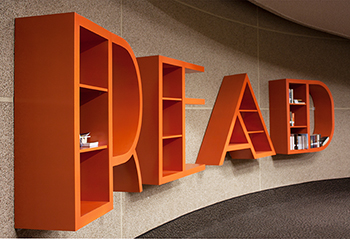Latest News Archive
Please select Category, Year, and then Month to display items
13 August 2024
|
Story Anthony Mthembu
|
Photo Sibahle Dayimani and Amandla Kulu
 Prof Peter Roseel, Managing Director of Management Consulting and Research – a spin-off of the Catholic University of Leuven in Belgium; and Prof Nicolene Barkhuizen, Director of the UFS Business School.
Prof Peter Roseel, Managing Director of Management Consulting and Research – a spin-off of the Catholic University of Leuven in Belgium; and Prof Nicolene Barkhuizen, Director of the UFS Business School.
The Business School at the University of the Free State (UFS) hosted Prof Peter Rosseel, Managing Director of Management Consulting and Research – a spin-off of the Catholic University of Leuven in Belgium – for a guest lecture during his visit to the UFS Faculty of Economic and Management Sciences (EMS).
The guest lecture took place on 19 July 2024 in the Business School Auditorium and was attended by academics from the UFS.
Reflecting on the lecture
The lecture presented by Prof Rosseel focused on how combining strategy, strategy implementation, culture transformation, leadership, and learning successfully leads to sustainable growth, creates engagement, and delivers tangible results. Throughout the lecture, Prof Rosseel spoke about how experts tend to make bad leaders and therefore stop change from happening within an organisation. In fact, he highlighted that, “Experts stop change from happening within the workplace because experts, by definition, look through the eyes of their expertise, but you cannot reduce the world to different forms of expertise, as it is holistic.” As such, he argued that to change an organisation, one must see things from the point of view of others.
Furthermore, Prof Rosseel delved deeper into the hierarchical operating model within organisations. He indicated that the above model should be one community within organisations; however, unfortunately it is not. This is because organisations are made up of several departments such as finance and human resources. As such, he regards these departments to be silos that could prove to be detrimental to organisations, as each silo can create its own culture as opposed to an organisational culture. These are some of the points he discussed throughout the lecture.
After the lecture concluded, the audience had the opportunity to engage with Prof Rosseel on his viewpoints. In fact, Lyle Markham, Academic Head of Department and Lecturer in Industrial Psychology at the UFS, was one of the audience members and described the lecture as insightful.
International Literacy Day an opportunity to reach out
2016-09-08

Sasol Library
Photo: Sonja Small
Library and Information Services and Community Engagement office promote literacy.
Fifty years ago UNESCO officially proclaimed 8 September International Literacy Day to actively mobilise communities and to promote literacy as an instrument of empowering individuals and society. This year this great milestone will be celebrated under the banner “reading the past, writing the future”. As we commemorate 50 years we should ask ourselves whether Illiteracy has been eradicated or not.
As part of its outreach programme, Library and Information Services, in collaboration with the office of Community Engagement, for the first time jointly celebrate International Literacy Day and invited members of the community to a book launch which took place at Lefikeng High School in Botshabelo on 8 September 2016. The programme also included the establishment of a small library at the school, and on 15 September, a writer’s day event will be held together with the Department of African Languages on the Bloemfontein Campus.
The book, “Amazing Grace”, was written by Free State-born writer, Charles Dunn. Dunn took the opportunity to speak to students and the community of Botshabelo about his inspiration for writing the book, as well as take them through his journey of life, from surviving drug addiction to imprisonment, and how he finally changed his life to become an author.
In working towards eradicating illiteracy, the Library and Information Services has hosted a number of book launches in the past, to encourage a culture of reading and writing among academia, students and surrounding communities, as well as opportunities for them to network with local and international authors. Feedback from these events bears testimony that indeed the library is successful in creating spaces for lifelong learning.